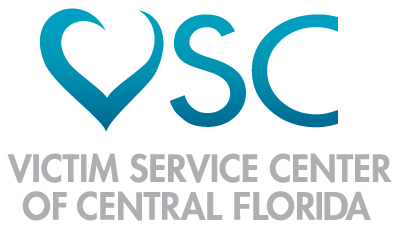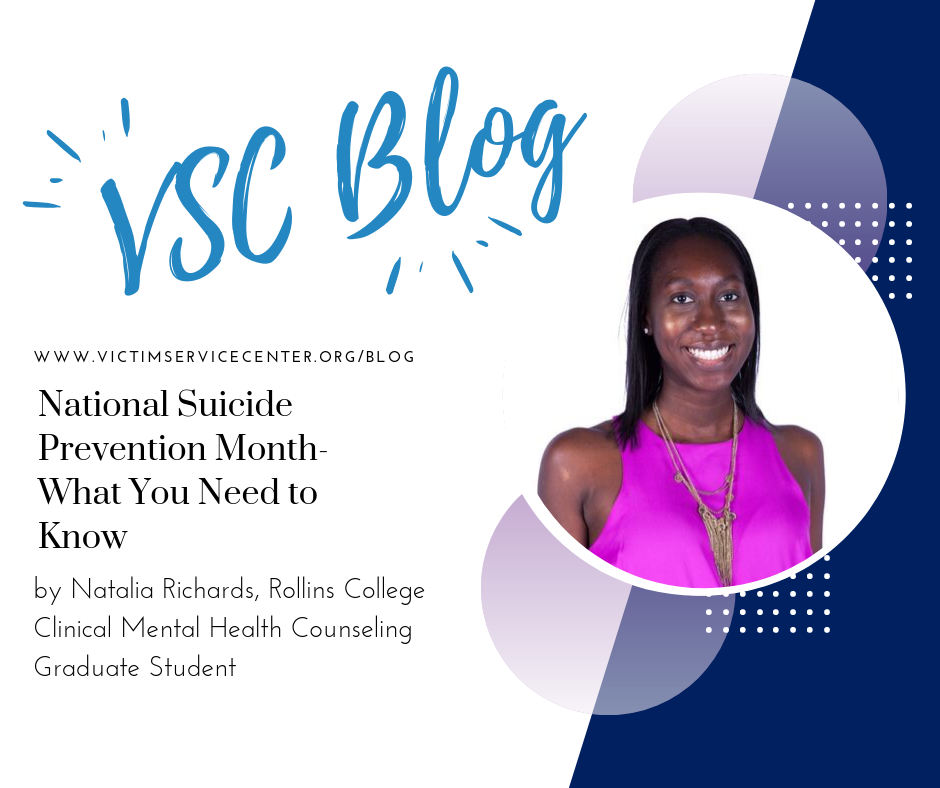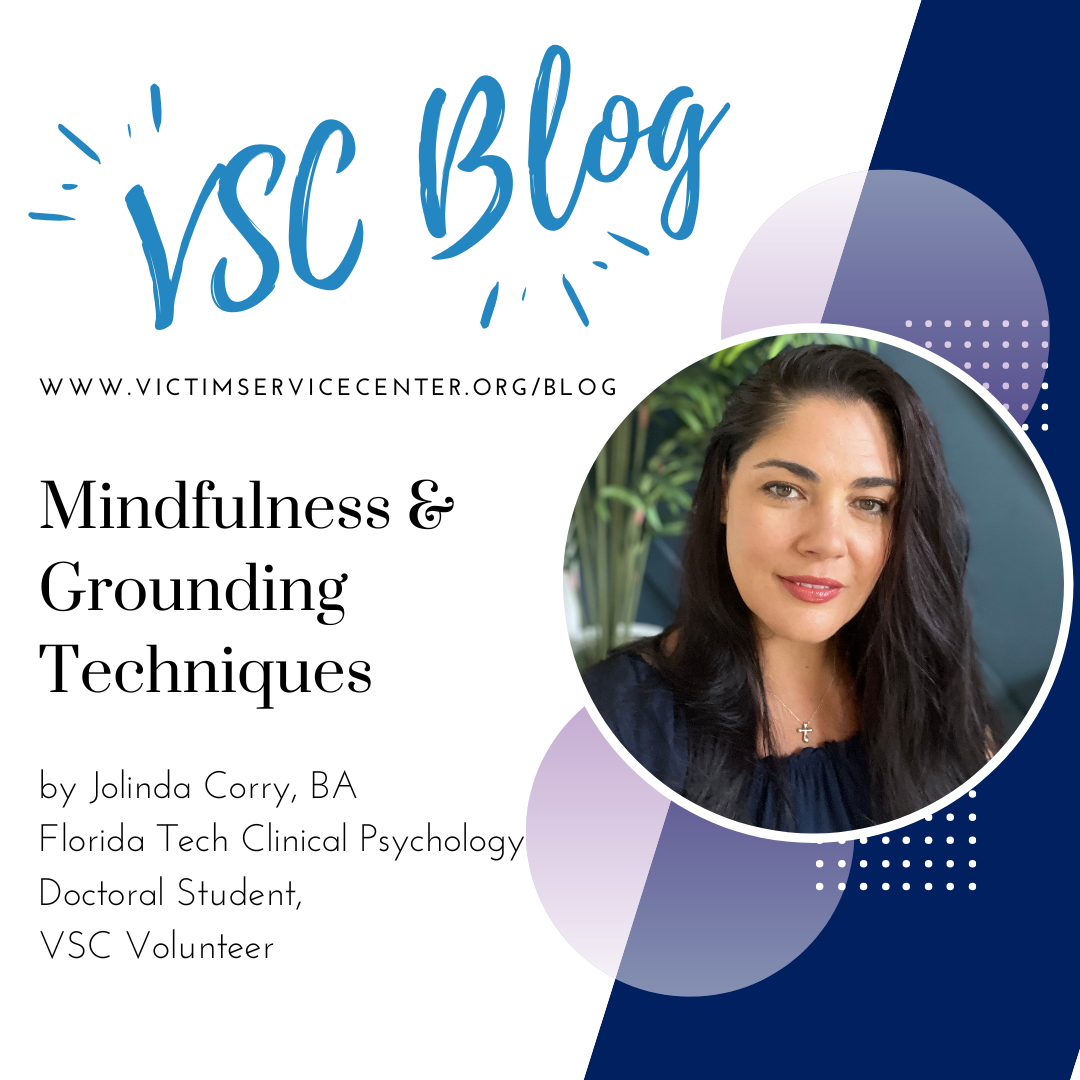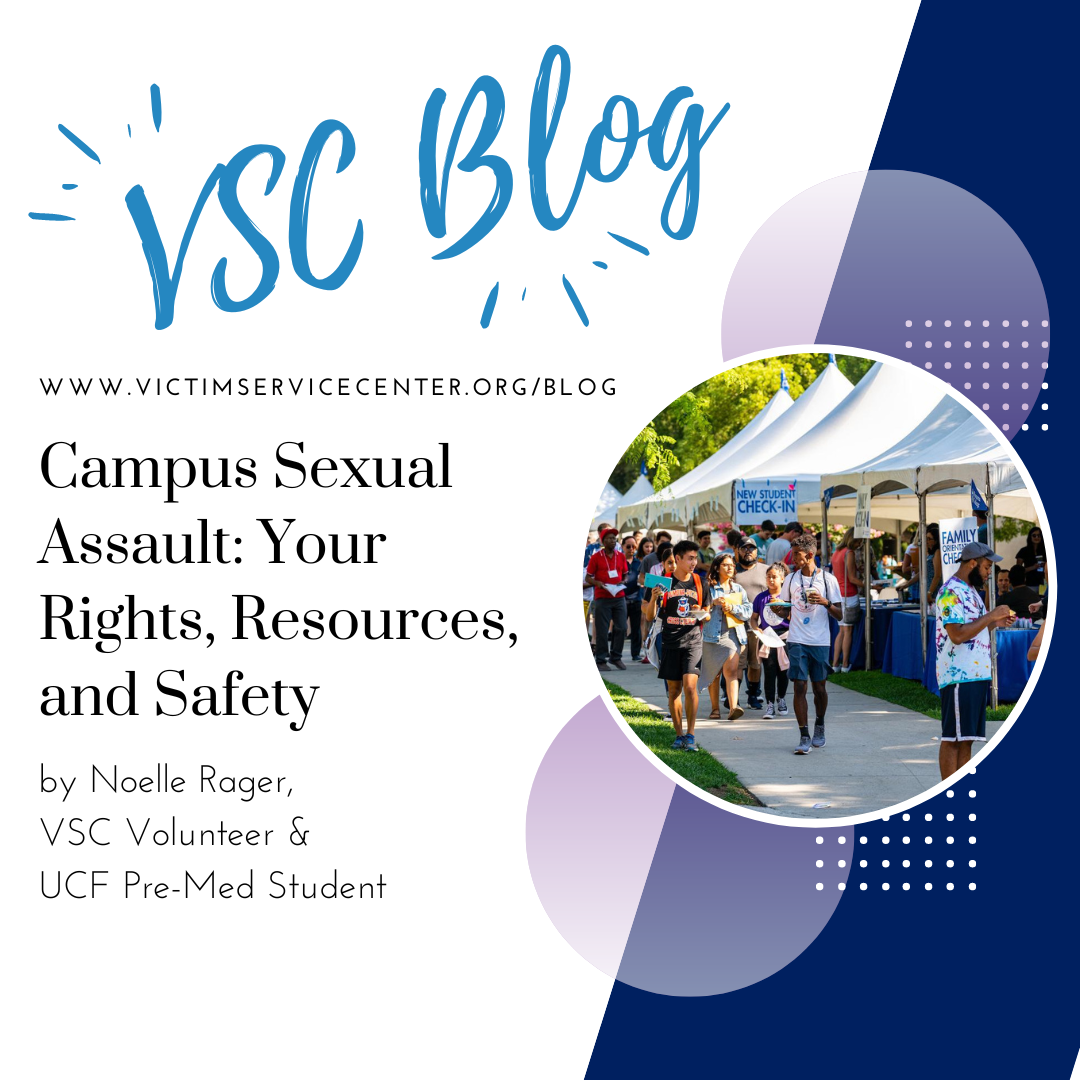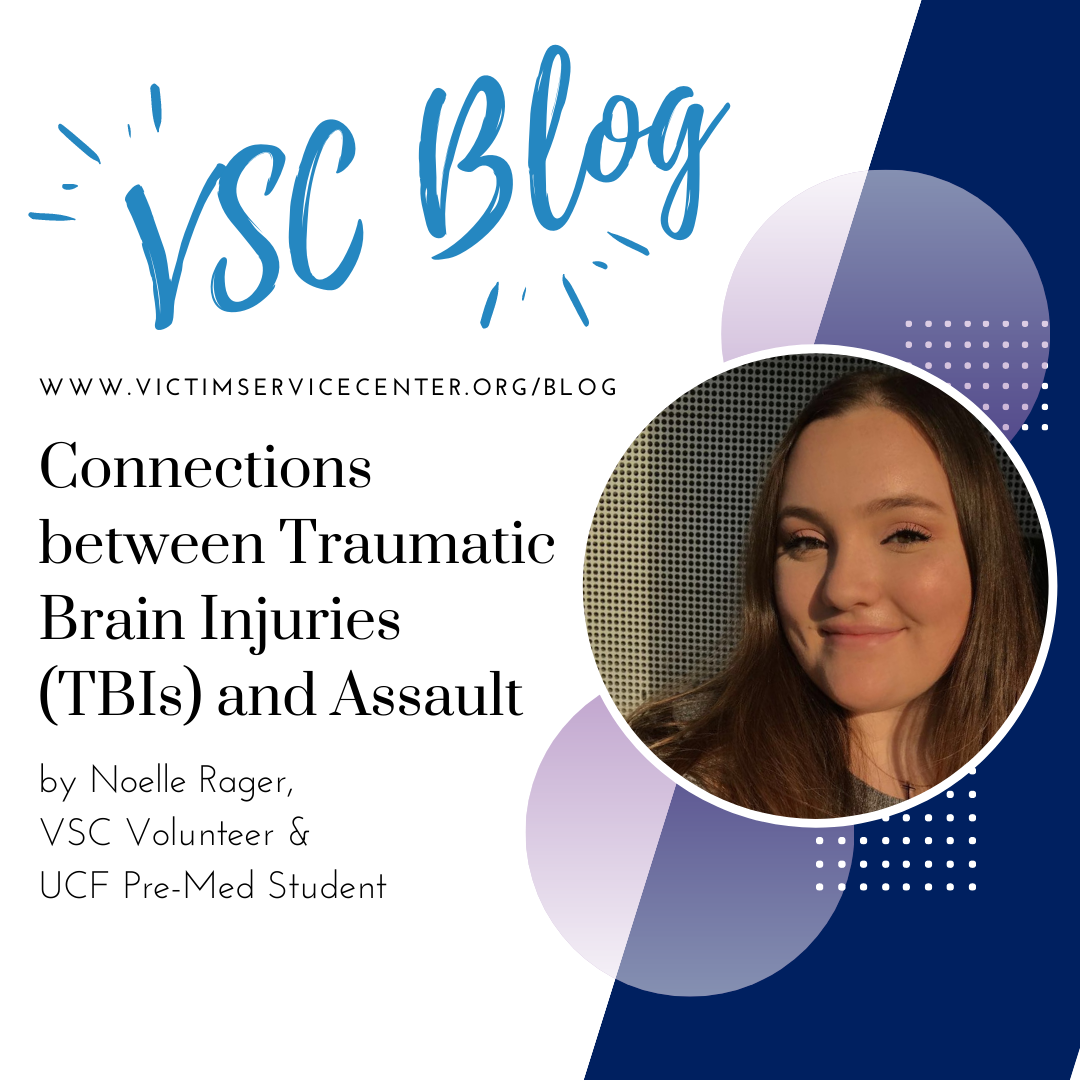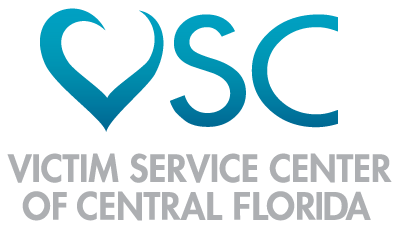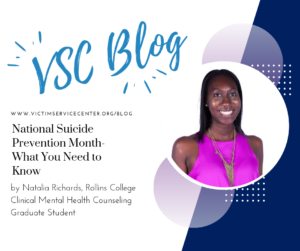
by Natalia Richards, Rollins College Clinical Mental Health Counseling Graduate Student
September is National Suicide Prevention Month! A month of sharing, educating, advocating and promoting suicide prevention awareness.
Facts about Suicide
Suicide is the 10th leading cause of death in the United States, which makes it a serious public health problem. Suicide is the second-leading cause of death among individuals between the ages of 10-34 years.
40% of transgender adults reported having made a suicide attempt. 92% of these individuals reported having attempted suicide before the age of 25.
33% of women who are survivors of a sexual assault contemplate suicide, while 13% of women who are survivors of sexual assault attempt suicide.
In the United States in 2016 nearly 45,000 people died by suicide, in 2017 over 47,000 people died by suicide. The rate of suicide has increased every year since 2006 and is only expected to grow.
However, suicide is preventable. Knowing the risk factors of suicide and recognizing the warning signs can help prevent suicide.
What is Suicide Prevention?
Suicide Prevention is reducing the risk of suicide; it involves the collective efforts of local or state run organizations, health and mental health professionals whose goal is to reduce the incidence of suicide.
What is Suicide?
Suicide is the act of ending your own life, by directing violence on yourself. When someone ends their own life, we say that they “died by suicide” or “completed suicide.” It is best to avoid the use of terms “committed suicide” or “successful suicide” because it adds a negative connotation.
A “suicide attempt” means that someone directed violence on themselves but did not die.
Risk Factors and Warning Signs
Risk Factors are characteristics that make it more likely that an individual will consider, attempt or die by suicide.
Risk Factors:
- LGBTQ+ victimization
- Previous suicide attempt(s)
- A history of suicide in the family
- Exposure to suicidal behaviors
- Alcohol and/or substance misuse
- Access to lethal means
- History of trauma and abuse
- History of losses and other events
- Chronic physical and mental health illnesses
Those who may struggle with Suicide:
- LGBTQ+
- Assault Survivors
- Attempt Survivors
- Youth
- Disaster Survivors
- Native Americans
- Veterans
- Deaf, Hard of Hearing and Hearing Loss
- These are a few groups of people that may struggle with suicide, however, any and every one can struggle with suicide for numerous reasons.
Warning signs indicate an immediate risk of suicide.
Warning Signs of Suicide:
- Feeling hopeless, helpless or worthless
- No sense of purpose in life
- Acting anxious or agitated
- Social isolation and loneliness
- Sudden sense of calm
- Dramatic mood changes
- Changing eating and/or sleeping patterns
- Self-destructive behavior
- Suicidal thoughts
- Preoccupation with death
- Feeling unbearable pain
- Increased alcohol and/or substance misuse
- Withdrawing from friends, family and community
- Giving away important possessions
- Saying goodbye
- Putting affairs in order
Five action steps for communicating with someone who may be suicidal:
Ask – Don’t be afraid to ask questions, including “Are you thinking about suicide?” It shows that you are open to communicating about a subject that many choose not to speak about. Remember you should do so in a non-judgmental and supportive way. But also don’t forget to listen. By listening, you will be able to see what the best course of action is, whether calling a helpline, 911, taking them to an emergency room or even a behavioral hospital. Be sure to take all answers seriously and do not ignore them!
Keep Them Safe – After you “Ask” and have determined suicide is being talked about, it’s important to establish immediate safety. So how do you do establish safety? Find out if the person has attempted suicide before, if they have a specific or detailed plan on how they would die by suicide? If there is a timeframe? If there is a method that they’d want to use and/or if they have access to obtain this method?
Be There – Can mean a few things, physically being present, speaking to them on the phone when you can, providing resources or showing support in any way they may need.
Help Them Connect – Helping someone with thoughts of suicide connect with ongoing support can help them establish a safety net for those moments they find themselves in a crisis and are in need of professional help.
Follow Up – Be sure to follow up with them to see how they’re doing. Don’t be afraid to check in to see by calling or texting, this is a great way to continue to show support and offer them assistance.
Resources:
BeThe1To
Toll-free National Suicide Prevention Lifeline (NSPL) is available 24/7 at 1–800–273–TALK (8255)
The Deaf and Hard of Hearing can contact the Lifeline via TTY at 1–800–799–4889
The Trevor Project (866) 488-7386
The Crisis Text Line is available 24/7. Text “HOME” to 741741
Trans Lifeline 877-565-8860
Victim Service Center 24/7 crisis helpline 407-500-HEAL (4325).
